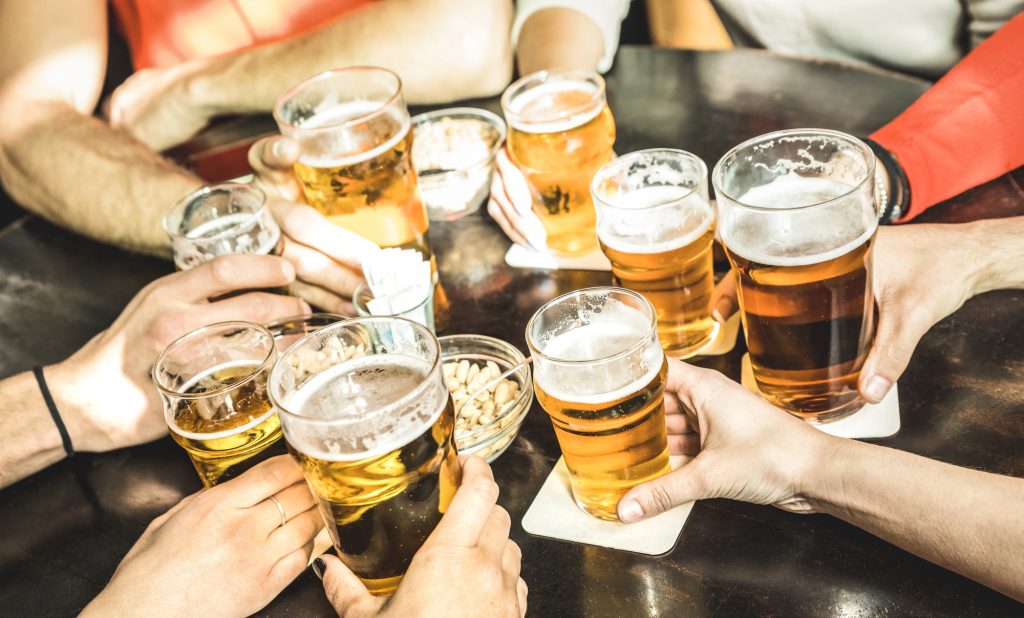SINGAPORE: As the holiday season approaches, many are flocking to popular getaway destinations in the region, such as Bangkok, Pattaya, Phuket, and Bali, eager to unwind and indulge in the vibrant nightlife scenes.
However, cardiologists sound a cautionary note, reminding revellers to pace themselves and prioritize their health amidst the year-end festivity.
Binge drinking and over-partying can pose a serious health risk, particularly in areas where alcohol is readily available, and the nightlife scene is vibrant and active.
“Creating awareness saves lives,” said Dr Koh Choong Hou, Consultant Cardiologist of Healthway Medical Group. “Vacations, year-end holidays and celebrations are meant to be joyful occasions.
It’s really no fun having to disrupt your festivities with an unplanned hospital visit. So, as 2024 draws to a close, I’d like to remind everyone to play safe, stay healthy and party in moderation!”
According to the Thai Tourism Authority, pre-pandemic Thailand welcomed a record 39 million foreign visitors in 2019 and hosted more than 1.9 million visitors from Singapore last year.
Bali, another popular destination for regional travellers, recorded more than 5 million international tourists in 2023, with most coming from Australia, Singapore, South Korea and India.

Cardiologists at the Nobel Heart Centre under Healthway Medical Group are similarly preparing to handle more patients with ‘celebratory conditions.’
These are health and medical conditions triggered by joy, known as the “Happy Heart Syndrome” and the “Holiday Heart Syndrome.”
In a study of 2,482 patients, 910 exhibited an emotional trigger, which consisted of 873 “broken hearts” (negative triggers) and 37 with “happy hearts” (positive triggers).
There were more happy hearts male patients, and they displayed atypical ballooning patterns (swollen ventricles).
Complications, including death, pulmonary edema (fluid in lungs), cardiogenic shock (insufficient blood being pumped to organs), and stroke, were similar in both happy and broken-hearted patients.
The Happy Heart Syndrome is the equivalent of the Takotsubo syndrome, which may lead to acute heart failure, even among the young.
It has been scientifically recognised as a medical condition similar to the Broken Heart Syndrome, where the heart fails in a moment of extreme grief.
It may be triggered by joyful activities such as giving a congratulatory speech, watching a football game, or, as expected, every year-end, festive celebrations with friends and family.
The second condition – the Holiday Heart Syndrome – is a brain-heart interaction with sympathetic overdrive, where the body is pushed to react to cope with extra stimuli, which may lead to abnormal heart rhythms (atrial fibrillation).
Research by medical professionals in the USA has revealed a troubling trend.
It was observed that during the festive periods, there is a significant spike in arrhythmia cases (irregular heartbeats), often triggered by excessive alcohol consumption.
Affected persons may experience shortness of breath, unusual and persistent giddiness, heart palpitations or extreme lethargy – all preliminary signs of sudden heart failure.
“Though it seems farfetched that feelings of joy can affect one’s health to such an extent, Happy Heart Syndrome (takotsobo cardiomyopathy) and Holiday Heart Syndrome are real and serious conditions, especially when they happen to young persons who brush off the initial warning signs.
I have seen cases where healthy adults have reacted dramatically to seemingly innocuous events, which result in them being admitted for symptoms of acute heart failure, where they may be hospitalised,” shared Dr Koh, who is the region’s only dual-accredited specialist in cardiology and aviation medicine.

As Singaporeans travel for their year-end holiday, they should also exercise caution when consuming alcohol, particularly in light of the recent alcohol poisoning case in Laos.
In a swift response to the recent tragedy, Laotian authorities have imposed a ban on the sale and consumption of local whisky and vodka following the devastating loss of six tourists who succumbed to suspected methanol poisoning earlier this month.
This decisive action aims to prevent further fatalities and ensure the safety of visitors and locals alike as the investigation into the incident continues to unfold.
Featured image by Depositphotos (for illustration purposes only)

